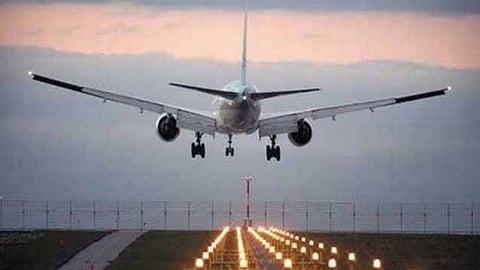

BENGALURU: The Indian Institute of Management Bangalore (IIMB) on Saturday hosted the 8th International Conference on the ‘Future of Aviation and Aerospace’, bringing together experts from across the aviation and aerospace industry.
The event focused on India’s growing potential in this sector, opportunities for manufacturing and design for global markets, and the challenges that need urgent attention.
During the event, IIMB Director Prof Rishikesha T Krishnan highlighted how the aviation sector in India evolved significantly over the years. He credited the expansion of airports and air routes for the “democratization of air travel” and added that Indian carriers have become among the most valuable airlines globally, something once considered unthinkable.
Prof Krishnan, however, pointed out that despite this growth, challenges persist. He spoke about supply chain bottlenecks, workforce fatigue and safety concerns. “When we see aircraft grounded for years or hear about staff collapsing due to overwork, it’s a signal that the sector needs to take better care of its people,” he said. He also flagged the need to train and protect human capital, and stressed the importance of improving processes, safety and quality, especially as India eyes a bigger role in global aerospace manufacturing.
Prof S Raghunath of IIMB raised similar concerns and said while the numbers show India is doing well, the system must support future growth. “Passenger traffic is expected to grow by 6-7% and international traffic by 11-15%. Our air cargo growth has already outpaced the global average — 19% compared to 13% worldwide,” he said, adding that India’s infrastructure, however, is struggling to keep up.
“Our airports look like crowded train stations. Even sitting space is hard to find. We have about 1,000 aircraft on order, but global manufacturers are facing supply chain delays,” he added.
Prof Raghunath welcomed new policies like expanding small airports and helipads, but questioned whether India was ready in terms of trained personnel. “Where is the talent? By 2030, we’ll need 10,900 new pilots and experts to manage drones, optimise flight routes, and more. Are we training people fast enough for that?” he asked.
He added that India has the potential to be a key global player in aerospace manufacturing, with experts estimating a possible 10% share in the global supply chain for critical components. However, he stressed the need for coordinated efforts across government departments to support industry players.